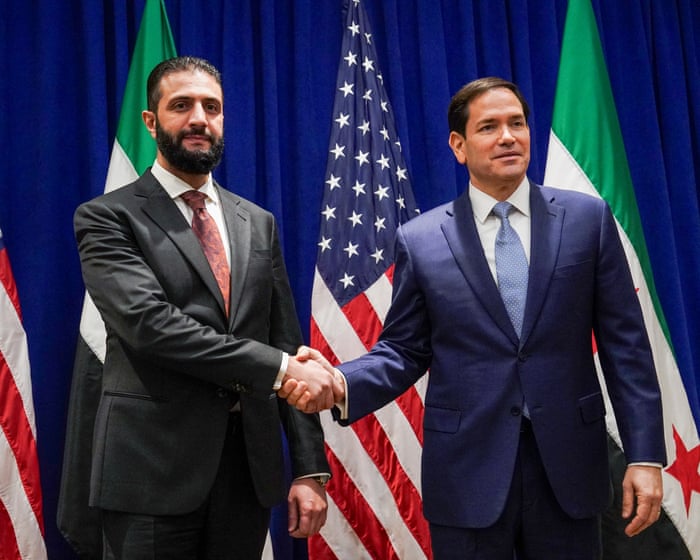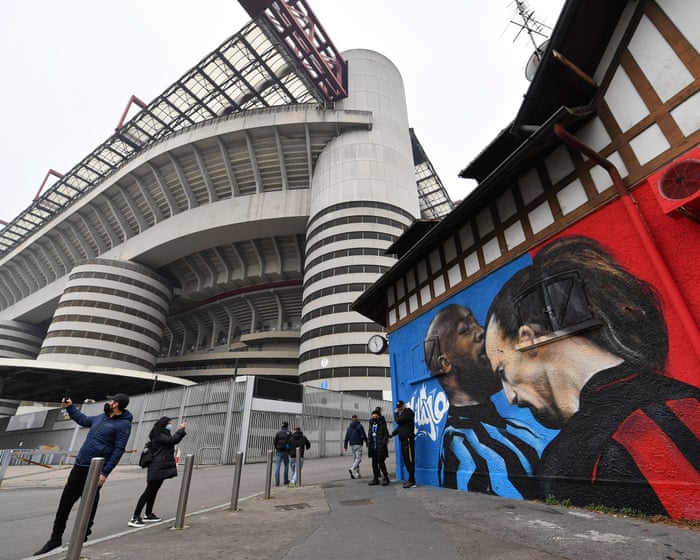Not long ago, Ahmed al-Sharaa—better known by his alias Abu Mohammed al-Jolani—would have been arrested upon arriving in the United States. As the former leader of Syria’s al-Nusra Front, he had a $10 million bounty on his head for organizing numerous terrorist attacks across Syria, many targeting civilians.
But this week, after toppling dictator Bashar al-Assad in a swift offensive last December, he is being celebrated in New York. He is meeting with world leaders at the UN General Assembly—the first Syrian head of state to do so since 1967.
“For many years we endured injustice, deprivation, and oppression,” Sharaa said in his address, dressed in a tailored gray suit and burgundy tie. “Then we rose up to claim our dignity.”
He faces a difficult challenge at this week’s UN meetings: to present himself as a statesman who can ease concerns about his past, calm fears of sectarian violence, and handle delicate diplomacy with the U.S. and Israel—all while maintaining the hardline reputation that brought him to power back home.
The former militant’s presence has created surreal scenes in New York. On Tuesday evening, one of the city’s most sought-after invitations was to a private members’ club in midtown Manhattan, where Sharaa spoke about his journey from jihadist to statesman in a “fireside chat” hosted by the Middle East Institute.
He has polished responses to doubts about his transformation: critics, he says, should not judge his past—including his time with al-Qaida—without understanding the context. “Anyone who sees a child killed in the streets will revolt,” he said through a live Arabic translation. “The pressure pushed people to seek solutions with whatever means they had.”
A day earlier, he sat down with David Petraeus, the former CIA director and U.S. general who led multinational forces in Iraq while Sharaa was fighting there—and later imprisoned—with al-Qaida.
“It’s good that we were once in combat, and now we are in dialogue,” Sharaa said, smiling at his former enemy. “Someone who has been through war understands the importance of peace best.”
Privately, Trump administration officials acknowledge that the U.S. has no alternative to Sharaa’s leadership in Syria. They see him as the best hope for preventing a return to civil war. While urging him to moderate his statements about Israel and curb sectarian violence at home, they also worry about alienating him from his supporters and local allies.
“He’s jumping through hoops to show he can be a world leader, not just a fighter,” said one U.S. official who has met with Sharaa. “Everything is very carefully calculated… So far, he’s pulling it off.”
At one point, Petraeus turned almost tenderly to the former head of Hay’at Tahrir al-Sham—which was only removed from the U.S. terrorist list in July—and asked a more personal question:
“How are you holding up under all this pressure? Are you getting time to think? Are you sleeping enough at night? I’ve been there, and it’s very, very hard. Your many fans—and I’m one of them—we worry about you.” The room at the Concordia Center broke into applause.
In public, Sharaa has said there is a chance for peace with Israel, but he also stated that Syria is “scared” of Israeli foreign policy in the region. He rejected the idea of Syria joining the Abraham Accords to normalize relations, citing public anger over Israeli airstrikes in Syria and the war in Gaza.
Another key goal for Sharaa during his visit to New York is to secure international support and investment for rebuilding Syria, while also balancing the expectations of his domestic base and the international community.This week in New York, Syria’s foreign minister is urging the United States to lift sanctions on his country. Although Donald Trump ended some sanctions in June, the Caesar Syria Civilian Protection Act of 2019 would need to be repealed by Congress—a step that may not happen soon.
Before a meeting with Marco Rubio, the minister, Sharaa, was asked about removing the sanctions. He shrugged toward the U.S. secretary of state, as if to say, “It’s not my decision—it’s his.”
“The Syrian people should not suffer again because of sanctions,” Sharaa said this week. “The Syrian people want to work. Lift the sanctions, and don’t worry about them.”
Frequently Asked Questions
Of course Here is a list of FAQs about the topic From alQaida to the Upper East Side Syrias new leader steps onto the global stage designed to be clear and natural
FAQs Syrias New Leader on the Global Stage
BeginnerLevel Questions
1 Who is Syrias new leader
The article refers to President Bashar alAssad who has been Syrias leader since 2000 The term new highlights his recent return to the global stage after years of international isolation
2 What does From alQaida to the Upper East Side mean
Its a phrase describing the dramatic shift in his international standing AlQaida symbolizes the extremist threats Syria faced during its civil war while the Upper East Side of Manhattan represents his reengagement with world leaders at forums like the UN
3 Why was Syrias leader isolated for so long
Many Western and Arab nations severed ties with Syria and imposed sanctions due to the governments brutal crackdown on protesters in 2011 which escalated into a devastating civil war
4 What changed to allow him back on the global stage
A major factor is the shifting geopolitical landscape including a push for normalization by some Arab nations who believe engagement is necessary for regional stability and to counter Irans influence
Advanced Practical Questions
5 What are the main arguments FOR reengaging with Syrias leader
Proponents argue its a pragmatic necessity to address humanitarian crises combat remaining extremist groups and create a political solution for lasting stability in the region
6 What are the main arguments AGAINST normalizing relations
Critics argue that normalization without accountability rewards a government accused of war crimes and human rights abuses undermines justice for victims and could embolden other authoritarian regimes
7 How have sanctions against Syria been affected by this shift
While some regional trade has opened broad international sanctions largely remain in place creating a complex situation where diplomatic relations are thawing but the economy is still severely constrained
8 What does this mean for the Syrian people
The impact is mixed Some hope it could lead to improved living conditions and reconstruction Others fear it solidifies the power of a government they hold responsible for their suffering



